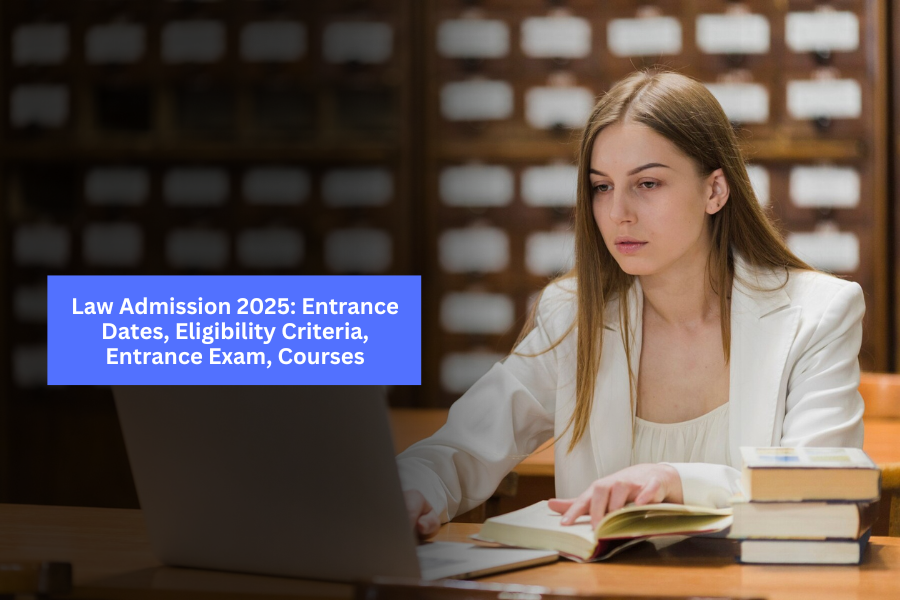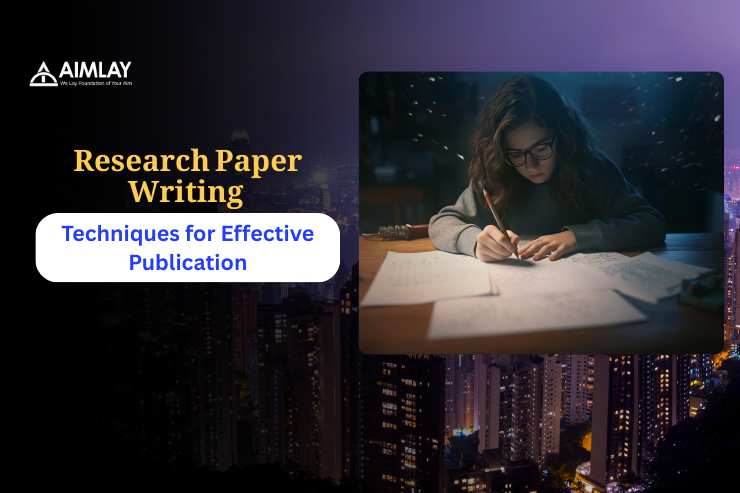BA in English Literature: Course Details, Admission, Syllabus, Scope 2024
- aimlay01
- Dec 12, 2024
- 6 min read
The study of English Literature offers a deep dive into the beauty and complexity of language, history, and human experiences through various literary forms. A Bachelor of Arts (BA) in English Literature is an undergraduate program that offers students an opportunity to engage with diverse texts, genres, and authors from different time periods. In this blog, we will explore the course details, admission process, syllabus, job opportunities, and the future scope of a BA in English Literature for 2024.

BA in English Literature: Course Details
A BA in English Literature is typically a three-year undergraduate program, although the duration may vary depending on the university and country of study. This course provides students with an in-depth understanding of English literature from its origins to contemporary works, exploring works of poetry, drama, fiction, and prose. Alongside literary analysis, the course develops a student’s skills in writing, critical thinking, research, and communication, making it an ideal choice for those who are passionate about literature and language.
The course is designed to enhance reading and writing skills, critical thinking, and an understanding of cultural, social, and historical contexts of literature. It may also introduce students to the basics of literary theory and the development of literary movements over time. By analyzing literature from various time periods, students also gain a broader perspective on the evolution of language, thought, and society.
All About BA in English Literature
BA in English Literature is not merely about reading novels or poetry. It is an academic journey through the realms of culture, history, and philosophy that shapes our world. Throughout the course, students explore:
Literary History: The evolution of literature, from classical works like those of Shakespeare, Chaucer, and Homer to contemporary authors.
Critical Theory: Different theoretical approaches to literature, such as feminist, Marxist, postcolonial, and psychoanalytic criticism.
Genres and Forms: A close examination of poetry, drama, novels, short stories, and essays.
Cultural and Social Contexts: Understanding the historical, political, and social contexts in which works were written, and how literature reflects societal change.
Through these studies, students are equipped to engage with texts critically, analyze themes, characters, symbols, and narrative structures, and appreciate the intricacies of the English language.
Why Study BA in English Literature?
There are several reasons why pursuing a BA in English Literature is a rewarding and enriching experience:
Passion for Literature: If you have a passion for reading and exploring diverse literary works, a BA in English Literature offers an opportunity to immerse yourself in both classic and modern literature.
Develop Critical Thinking: The program emphasizes analytical skills and critical thinking. You’ll learn how to dissect texts, understand deeper meanings, and formulate compelling arguments.
Strong Communication Skills: A significant aspect of the course is writing essays and engaging in discussions. This sharpens both written and verbal communication skills, valuable in a wide range of professions.
Cultural Awareness: By studying literature from various time periods and cultural contexts, you gain a better understanding of global societies and diverse perspectives.
Creative Expression: The course encourages creative thinking, and many students explore their own creative writing interests alongside academic studies.
Wide Career Scope: A BA in English Literature can lead to careers in education, writing, publishing, journalism, and more. The versatility of the degree makes it a viable choice for those with varied career aspirations.
BA in English Literature: Admission Process
The admission process for a BA in English Literature typically involves the following steps:
Eligibility: Candidates must have completed their higher secondary education (10+2) from a recognized board in the Arts, Science, or Commerce stream, though preference is given to students who have studied English as a subject.
Entrance Exams: Many universities conduct entrance exams for admission to the BA English Literature program. These exams may test general knowledge, comprehension, reasoning, and language skills. However, some universities may admit students based on merit, i.e., their performance in the higher secondary exams.
Application Process: Candidates need to apply online or offline by filling out the application form for the desired university. Ensure that you meet all the deadlines and provide the necessary documents, such as academic transcripts, proof of identity, and passport-size photographs.
Counseling/Interviews: Some universities may have a counseling or interview round to assess the candidate’s interest in literature and communication skills.
Admission Offer: Upon clearing the entrance exam or interview, candidates receive an admission offer from the university. Students must then complete the required formalities to confirm their enrollment.
Types of BA in English Literature Courses
While the core structure of a BA in English Literature remains the same, various universities offer different specializations or course variations. Some of the common types of BA English Literature courses include:
General BA in English Literature: This is the standard course where students study a wide range of texts from different periods, genres, and literary movements.
BA in English Literature with Honours: An advanced version of the regular BA program, this course offers a deeper exploration of literature, often including a research project or dissertation in the final year.
BA in English Literature and Creative Writing: This course combines the study of literature with the practical application of creative writing, providing students with the opportunity to develop their own writing skills alongside academic studies.
BA in English Literature with Comparative Literature: This variant offers a comparative approach, where students study English literature in the context of other world literatures, such as French, German, or Latin American works.
BA in English Literature with Cultural Studies: This course focuses on the social, cultural, and historical contexts of literature, helping students understand how literature interacts with society and politics.
BA in English Literature: Syllabus & Subjects
The syllabus of a BA in English Literature can vary across institutions, but it typically covers the following subjects:
Year 1:
English Poetry: An introduction to classical and romantic poetry, with readings from poets like Shakespeare, Wordsworth, and Keats.
Drama: Study of major plays, such as those by Shakespeare, Ibsen, and Chekhov.
Prose and Fiction: Introduction to short stories and novels, including works by Austen, Dickens, and other major authors.
Writing and Composition: Focus on improving writing skills and understanding grammar, style, and rhetoric.
Year 2:
British Literature: More focused study of British writers, including the Victorian era and modern writers like Virginia Woolf and T.S. Eliot.
American Literature: Study of major American writers, such as Mark Twain, Emily Dickinson, and Hemingway.
Literary Theory and Criticism: Introduction to critical approaches such as Marxism, feminism, and psychoanalysis.
World Literature: Exploration of texts from non-English-speaking regions, such as Indian, African, or Latin American literature.
Year 3:
Modern and Contemporary Literature: Exploration of 20th and 21st-century writers and movements.
Shakespeare and His Contemporaries: A deeper study of Shakespeare’s works and other writers from his time.
Postcolonial Literature: Study of the impact of colonialism on literature, with a focus on writers like Chinua Achebe and Salman Rushdie.
Dissertation/Project: Students may be required to write a research project on a topic of their choice.
BA in English Literature: Job Profiles
A BA in English Literature opens up various career opportunities across different sectors. Some of the popular job profiles include:
Content Writer: Writing articles, blogs, and other forms of content for websites, businesses, or media companies.
Editor: Working in publishing houses, magazines, or online platforms to edit and proofread content.
Journalist: Writing for newspapers, magazines, or digital media outlets.
Copywriter: Crafting persuasive content for advertisements, websites, and marketing materials.
Teacher/Lecturer: Teaching English literature at schools or colleges.
Social Media Manager: Managing the online presence of brands, including creating content and engaging with the audience.
Public Relations Specialist: Creating and maintaining a positive public image for individuals or companies.
Publishing Assistant: Assisting in the editorial, design, or marketing aspects of publishing.
BA in English Literature: Scope
The scope of a BA in English Literature is vast and continually evolving. Here are some areas where graduates can find opportunities:
Education: Many graduates become teachers or lecturers, teaching English Literature at schools or universities. With further qualifications like a Master’s degree or B.Ed., career prospects expand in this field.
Media and Journalism: With a flair for writing, graduates can enter the media industry, working as journalists, editors, or content creators for newspapers, magazines, websites, or broadcast media.
Creative Writing: Graduates can become authors, poets, screenwriters, or copywriters. The growing digital content industry offers numerous opportunities for creative writers.
Corporate Sector: Many companies value the communication and critical thinking skills developed in a BA in English Literature, hiring graduates in roles like marketing, public relations, and corporate communication.
Further Studies: Many graduates choose to pursue higher studies, including a Master’s in English Literature, Creative Writing, Journalism, or even interdisciplinary fields like Cultural Studies, Law, or Business Administration.
Conclusion
A BA in English Literature offers not only a deep understanding of literature but also equips students with valuable skills in communication, writing, critical thinking, and cultural awareness. Whether you’re passionate about literature, creative writing, or the broader social contexts of literary works, this degree offers a wealth of opportunities in both academic and professional domains. With a growing scope in media, education, publishing, and more, pursuing a BA admission 2024 is a strong choice for those seeking a career that combines intellectual fulfillment with diverse job prospects.








Comments